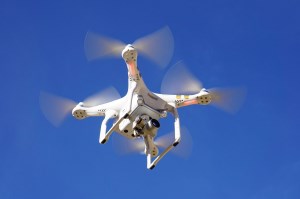The Queensland Law Reform Commission is investigating how the state’s privacy laws can be tightened to govern the use of drones.
Attorney-General Yvette D’ath has directed the Commission to examine modernising legislation to take into account "current and emerging technologies".
The review was one of several recommendations from last month’s Queensland Drones Strategy [pdf] – the first-ever whole-of-government strategy to be released in Australia.
It raised concerns about the adequacy of the state’s existing privacy laws, which currently don't extend to “optical, tracking or data surveillance”.
Instead, individuals are forced to rely on general laws such as trespass and nuisance.
“In most other states and the Northern Territory, surveillance device legislation applies and extends beyond regulating the use of listening devices,” the review's terms of reference [https://bit.ly/2vs1NDW] state.
The Commission has been asked to “recommend whether Queensland should consider legislation to appropriately protect the privacy of individuals in the context of civil surveillance technologies”.
This includes whether the state should regulate the use of “optical surveillance devices, tracking devices and data surveillance devices” including drones to protect the privacy of individuals.
‘Unreasonable intrusions on privacy’
It will look to legislative and regulatory arrangements both from Australian and internationally in marking its recommendations.
However, the review will not look into the use of surveillance devices by law enforcement agencies, as they are already regulated under separate legislation.
"With the advent of readily available technologies, including smartphones, drones fitted with cameras, and tracking and data surveillance devices, governments are increasingly expected to protect individuals from unreasonable intrusions on their privacy," the terms of reference note.
"The need to regulate the use of surveillance devices and technologies to protect individuals against interferences with their privacy must be balanced against the legitimate uses of surveillance."
The review is expected to take just over a year to complete.
Source: IT News


